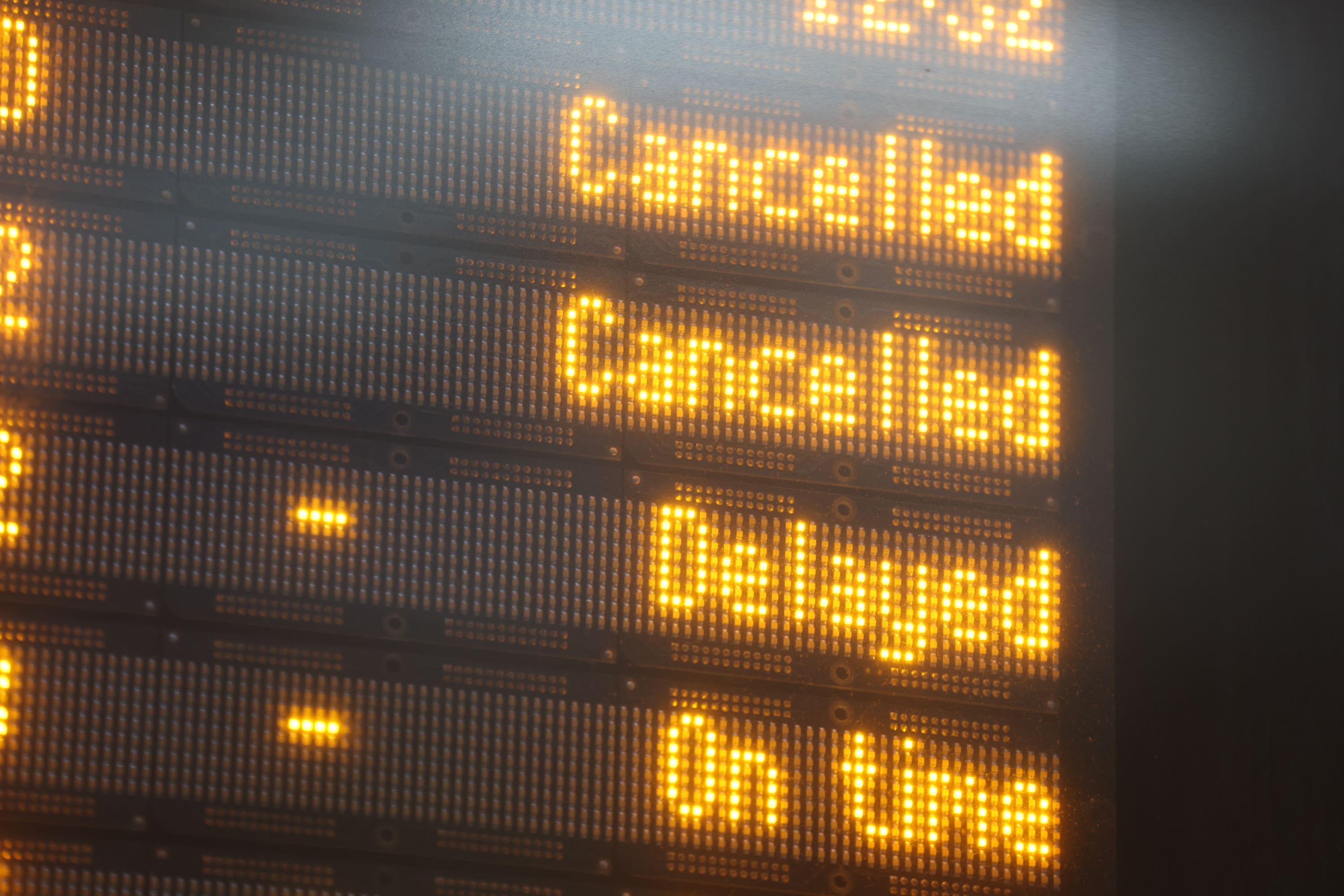Commuters struggle to get to work despite rail strikes being called off
Most train operators were running reduced timetables as the unions’ decision not go ahead with walkouts was only announced on Friday.

Your support helps us to tell the story
From reproductive rights to climate change to Big Tech, The Independent is on the ground when the story is developing. Whether it's investigating the financials of Elon Musk's pro-Trump PAC or producing our latest documentary, 'The A Word', which shines a light on the American women fighting for reproductive rights, we know how important it is to parse out the facts from the messaging.
At such a critical moment in US history, we need reporters on the ground. Your donation allows us to keep sending journalists to speak to both sides of the story.
The Independent is trusted by Americans across the entire political spectrum. And unlike many other quality news outlets, we choose not to lock Americans out of our reporting and analysis with paywalls. We believe quality journalism should be available to everyone, paid for by those who can afford it.
Your support makes all the difference.Many commuters struggled to get to work on Monday as urban roads were jammed and train services were disrupted despite planned rail strikes being called off.
Most train operators are running reduced timetables as the unions’ decision not go ahead with their walkouts was only announced on Friday.
They include Avanti West Coast, Chiltern Railways, Great Wester Railway, Northern, London North Eastern Railway and Southern.
Network Rail’s signallers have returned to work, meaning all lines are open.
But a lack of driver availability is limiting passenger services as most train companies have to give a notice period for shifts of seven days, with short notice changes made on a voluntary basis.
There are also issues relating to train crews and trains being in the wrong place.
These problems pushed many commuters on to roads, leading to a surge in traffic jams.
Location technology firm TomTom said road congestion at 9am was higher in a number of cities than at the same time last week.
In London, congestion levels rose from 60% on October 31 to 94% on Monday.
In Manchester they were up from 62% to 78%, and in Glasgow they increased from 54% to 81%.
The figures reflect the proportion of additional time required for journeys compared with free-flow conditions.
Trains are expected to return to near-normal from Tuesday, although some services will not start until about 7am rather than 5am.
The Prime Minister’s official spokesman said: “First and foremost, ending the strikes or calling off these strikes was a positive development for passengers.
“It means the talks have a better chance of success.
“But you would recognise there was extremely late notice and that has meant there is disruption.
“We know Network Rail and the Rail Delivery Group (RDG) have worked throughout the weekend and were able to add services today and on Saturday.”
Members of the Rail, Maritime and Transport union (RMT) and Transport Salaried Staffs’ Association (TSSA) were set to stage walkouts on Saturday, Monday and Wednesday in a long running dispute over jobs, pay and conditions.
But RMT suspended the strikes, saying it had secured “unconditional” talks with Network Rail and the promise of a pay offer from the train operating companies.
The union said the dispute remains “very much live” and it is continuing its re-ballot of members to secure a fresh mandate for action with the result due on November 15.
Talks will now be held over the next few weeks to try to resolve the dispute over pay, jobs and conditions.
The TSSA called off its planned rail strikes on November 5, 7, 8 and 9 after receiving an invitation to “intensive talks” from the RDG.
TSSA members were due to take strike action in five different rail companies on different days over the period.